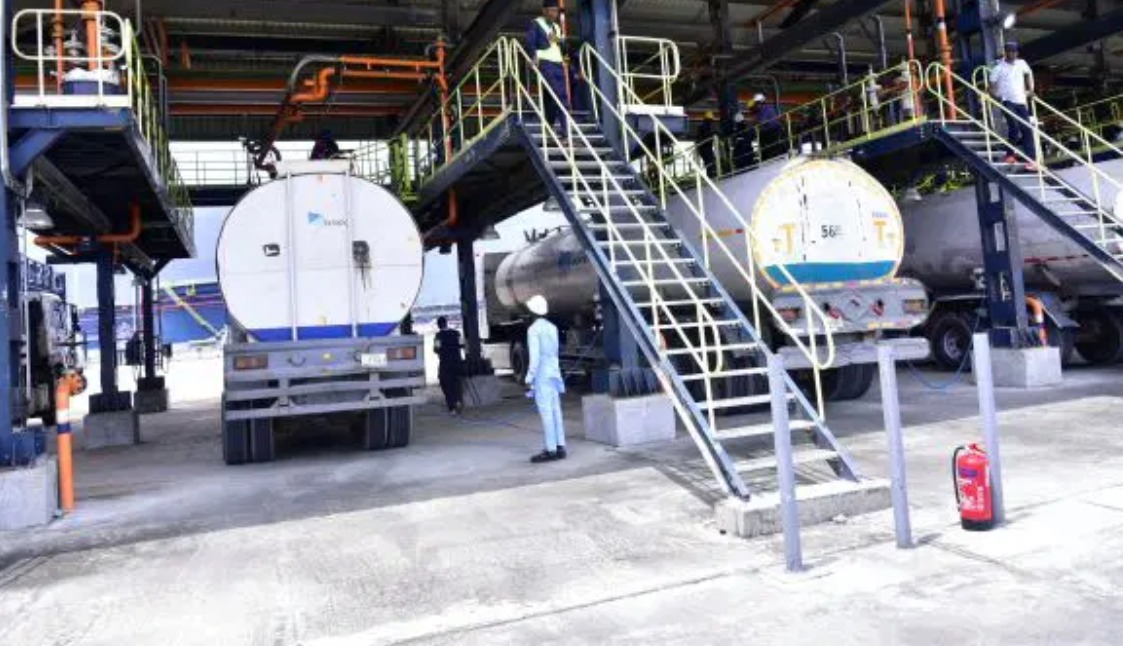The Dangote Petroleum Refinery has confirmed it will commence the nationwide distribution of Premium Motor Spirit (PMS) and Automotive Gas Oil (AGO) popularly known as petrol and diesel from August 15, 2025.
In a strategic move to transform the country’s fuel supply chain, the company is rolling out 4,000 new tankers powered by Compressed Natural Gas (CNG) to ensure efficient product delivery across Nigeria. This development marks a major shift in the downstream sector and aligns with broader efforts to localise fuel supply and cut reliance on imports.
A statement released on Sunday revealed that the fuel supply will be extended to a wide range of buyers including licensed marketers, filling station owners, manufacturers, aviation companies, and telecom operators. As part of the logistics strategy, the refinery has also acquired over 100 CNG powered vehicles to support dedicated routes and will establish “daughter booster” CNG stations to further strengthen its last-mile delivery.

Significantly, the refinery announced that it will offer free delivery of fuel to approved partners as part of a cost saving initiative intended to remove distribution bottlenecks and ease operational challenges in the energy sector.
“From August 15, Dangote Refinery will commence the supply of PMS and diesel across the country, ensuring seamless access through a logistics support system designed to boost efficiency and reduce overall distribution costs,” the statement noted.
This announcement follows recent remarks by Dangote Group President, Aliko Dangote, who hinted at a coming “shakedown” in the oil and gas sector. According to Dangote, the goal is not a temporary price drop, but a fundamental overhaul of the downstream infrastructure and business model.
The development also comes amid brewing tensions within the fuel transport sector. Tanker drivers in Lagos have threatened to halt operations starting Monday, protesting the N12,500 per truck fee imposed for electronic call-up access along the Lekki-Epe corridor a key route for depot loading.
In addition, the refinery is introducing a credit scheme for major bulk buyers purchasing upwards of 500,000 litres, a move expected to rejuvenate non-operational petrol stations, support small businesses, and reinforce ongoing government economic reforms under the Tinubu administration.
Observers see this as a potentially game-changing intervention in Nigeria’s energy supply landscape, with expectations that local production and direct distribution could significantly stabilise fuel access and reduce inflationary pressures in the coming months.




